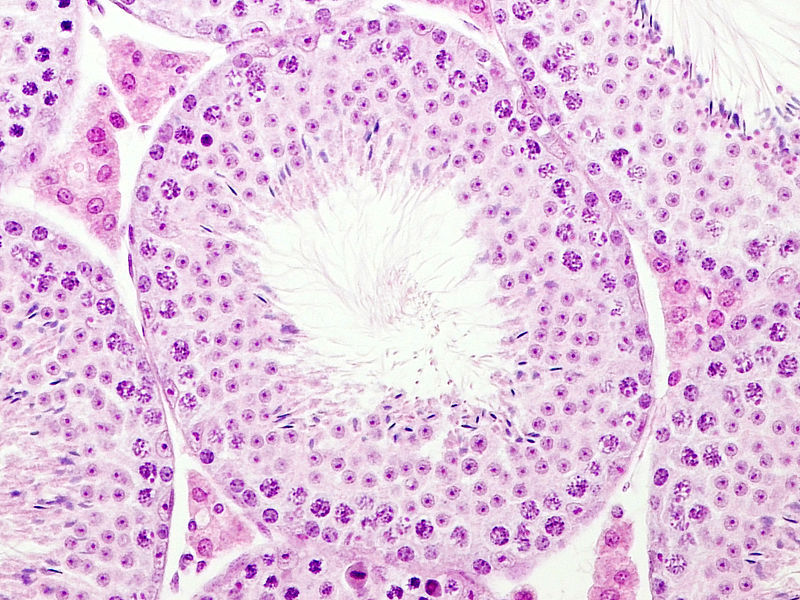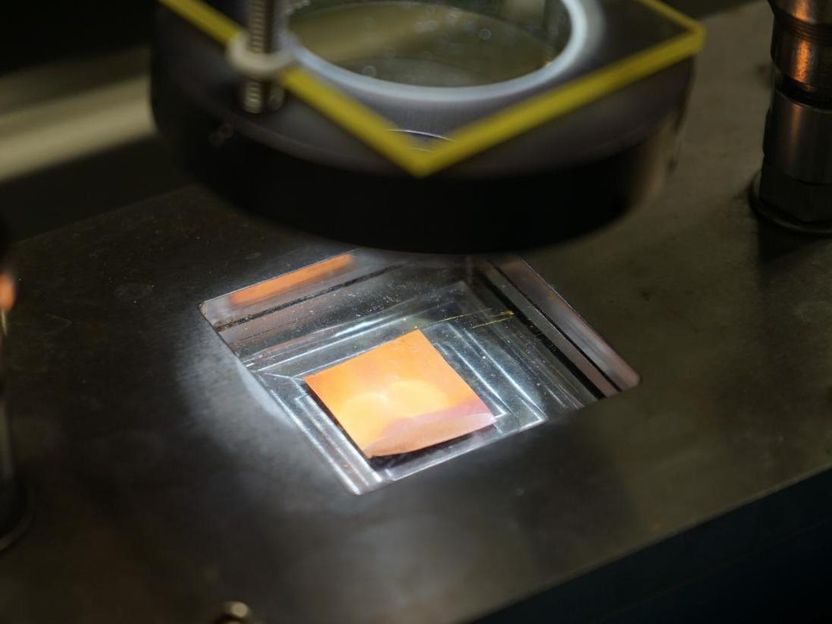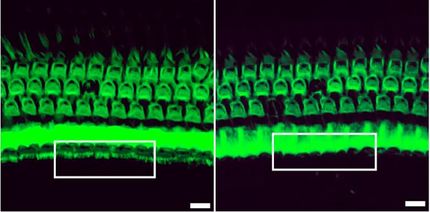More functional DNA in mitochondria cures male infertility
Male infertility can be caused by mutations in the DNA of mitochondria, the powerhouses of cells. By increasing the total DNA amount in mitochondria, scientists from the Max Planck Institute for Biology of Ageing in Cologne restored testis function and semen quality in infertile mice.

Microscopy image of mouse testis
Max Planck Institute for Biology of Ageing
Worldwide approximately nine percent of women and men are involuntarily childless. In 40 to 50 percent of the cases this is due to male infertility. This infertility can be caused by different reasons, one of them are mutations in the mitochondrial DNA. Mitochondria are tiny energy factories inside the cell and harbor their own independent genome – the mitochondrial DNA (mtDNA). Mice suffering from a high number of mutations in the mtDNA are infertile and have fewer and less motile sperm.
Max Planck scientist Min Jiang and her colleagues studied these mice and found a way to overcome the consequences of these mutations. ”We increased the total amount of mtDNA in the mitochondria of the testis. This did not change the proportion of mtDNA with mutations, but it increased the absolute number of non-mutated mtDNA, which restored mitochondrial energy production and semen quality”, explains Jiang.
As a next step the researchers want to screen for pharmaceuticals, which could stimulate total mtDNA amount in the testis. “We hope to find an efficient future strategy to treat or even cure patients suffering from infertility caused by mtDNA mutations”, says Jiang.
Original publication
Min Jiang, Timo Eino Sakari Kauppila, Elisa Motori, Xinping Li, Ilian Atanassov, Kat Folz-Donahue, Nina Anna Bonekamp, Sara Ruth Albarran-Gutierrez, James Bruce Stewart, Nils-Göran Larsson; "Increased total mtDNA copy number cures male infertility despite unaltered mtDNA mutation load"; Cell Metabolism; 1 Aug 2017
Most read news
Original publication
Min Jiang, Timo Eino Sakari Kauppila, Elisa Motori, Xinping Li, Ilian Atanassov, Kat Folz-Donahue, Nina Anna Bonekamp, Sara Ruth Albarran-Gutierrez, James Bruce Stewart, Nils-Göran Larsson; "Increased total mtDNA copy number cures male infertility despite unaltered mtDNA mutation load"; Cell Metabolism; 1 Aug 2017
Organizations
Other news from the department science

Get the life science industry in your inbox
By submitting this form you agree that LUMITOS AG will send you the newsletter(s) selected above by email. Your data will not be passed on to third parties. Your data will be stored and processed in accordance with our data protection regulations. LUMITOS may contact you by email for the purpose of advertising or market and opinion surveys. You can revoke your consent at any time without giving reasons to LUMITOS AG, Ernst-Augustin-Str. 2, 12489 Berlin, Germany or by e-mail at revoke@lumitos.com with effect for the future. In addition, each email contains a link to unsubscribe from the corresponding newsletter.
Most read news
More news from our other portals
Last viewed contents

Novel photocatalyst effectively turns carbon dioxide into methane fuel with light - Nature-inspired photocatalysis
VaxGen Raises USD 79M Through Sale of Interest in Overseas Biopharmaceutical Manufacturing Facility






















































